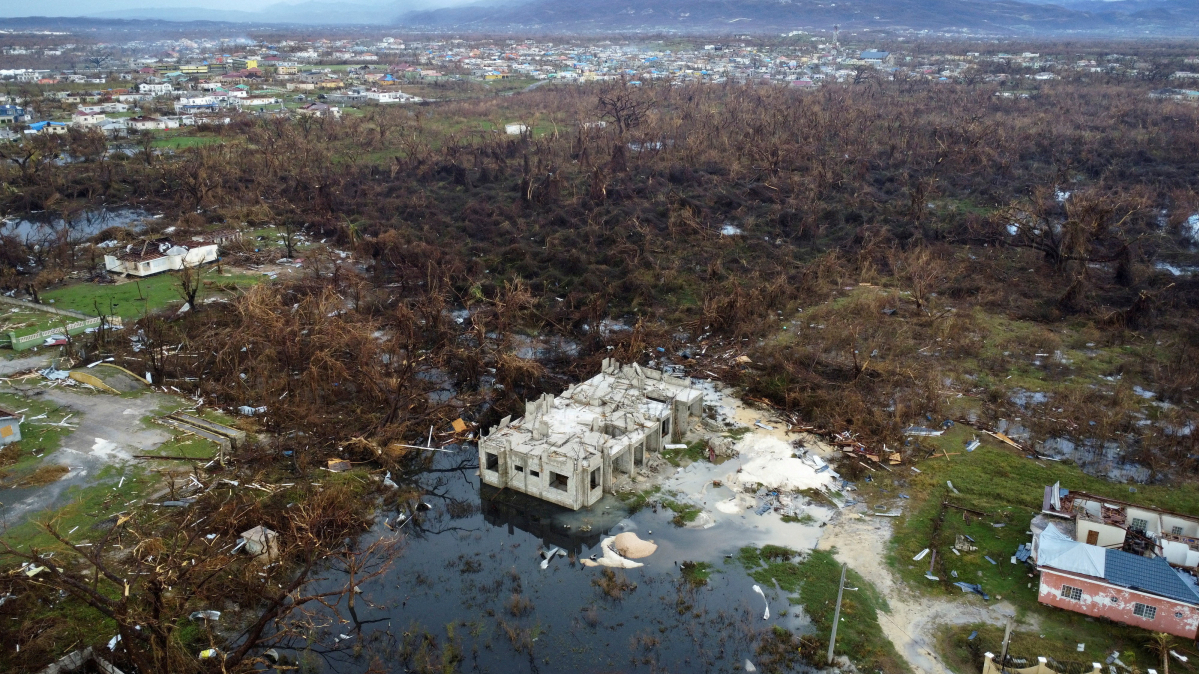Eight killed after Chinese tour bus plunges into frozen Lake Baikal
Divers have recovered the bodies of seven Chinese tourists and a Russian driver after their minibus broke through the ice of Lake Baikal in Russia, au...

As typhoons hit Southeast Asia and Jamaica and Brazil recover from recent storms, delegates at Brazil’s COP30 summit are confronting how to help vulnerable communities cope with worsening climate extremes.
The topic of "adaptation" has grown more important as countries fail to rein in climate-warming emissions enough to prevent extreme warming linked to increasingly frequent weather disasters across the planet.
A UN report last month said developing countries alone would need up to $310 billion every year by 2035 to prepare.
Where that money will come from is unclear.
Ten of the world's development banks, under pressure to free more cash for climate action, said on Monday they would continue to support the need.
Last year, they channeled more than $26 billion to low- and middle-income economies for adaptation.
The fund, which also works to plug gaps in weather data for developing countries, hopes for country donations this week during COP30.
On Monday, Germany and Spain pledged $100 million to a different effort, the multilateral Climate Investment Funds (CIF), which is financing projects to boost climate resilience in developing countries.
The organisation's chief praised Brazil for featuring the issue as a COP30 focus, after years of seeing the issue slide down UN climate summit agendas.
Quentin Griffiths, co-founder of online fashion retailer ASOS, has died in Pattaya, Thailand, after falling from the 17th floor of a condominium on 9 February, Thai police confirmed.
Cubans are increasingly turning to solar power to keep businesses operating and basic household appliances running during prolonged electricity cuts, as fuel shortages make diesel generators and other temporary solutions more difficult and costly to maintain.
Ukraine’s National Paralympic Committee has announced it will boycott the opening ceremony of the Milano Cortina 2026 Paralympics in Verona on 6 March, citing the International Paralympic Committee’s decision to allow some Russian and Belarusian athletes to compete under their national flags.
Eric Dane, the actor best known for his roles in 'Grey’s Anatomy' and 'Euphoria', died on Thursday, at the age of 53 after a battle with amyotrophic lateral sclerosis (ALS). His family confirmed his death after what they described as a “courageous battle” with ALS.
An Austrian climber has been convicted of gross negligent manslaughter after his girlfriend died from hypothermia while climbing Austria’s highest peak, the Grossglockner, in January 2025.
The administration of U.S. President Donald Trump on Thursday (12 February) announced the repeal of a scientific finding that greenhouse gas emissions endanger human health, and eliminated federal tailpipe emissions standards for cars and trucks.
Tropical Cyclone Gezani has killed at least 31 people and left four others missing after tearing through eastern Madagascar, the government said on Wednesday, with the island nation’s second-largest city bearing the brunt of the destruction.
Rivers and reservoirs across Spain and Portugal were on the verge of overflowing on Wednesday as a new weather front pounded the Iberian peninsula, compounding damage from last week's Storm Kristin.
Morocco has evacuated more than 100,000 people from four provinces after heavy rainfall triggered flash floods across several northern regions, the Interior Ministry said on Wednesday.
Greenland registered its warmest January on record, sharpening concerns over how fast-rising Arctic temperatures are reshaping core parts of the island’s economy.
You can download the AnewZ application from Play Store and the App Store.

What is your opinion on this topic?
Leave the first comment